Greetings to our most tolerant people of Rivers State and welcome to another episode of RivEthics on Radio, our character-building weekend show. Please remember that Tolerance is giving to every other human being every right that you claim for yourself. This episode is in Commemoration of the United Nations’ International Day for Tolerance, coming up today, November 16.
On its 50th anniversary, UNESCO’s Member States adopted a Declaration of Principles on Tolerance. Among other things, the Declaration affirms that tolerance is neither indulgence nor indifference. It is respect and appreciation of the rich variety of our world’s cultures, our forms of expression and ways of being human. Tolerance recognizes the universal human rights and fundamental freedoms of others. People are naturally diverse; only tolerance can ensure the survival of mixed communities in every region of the globe.
In the modern world, tolerance is more essential than ever before. It is an age marked by the globalization of the economy and by rapidly increasing mobility, communication, integration and interdependence, large-scale migrations and displacement of populations, urbanization and changing social patterns. Since every part of the world is characterized by diversity, escalating intolerance and strife potentially menaces every region. It is not confined to any country, but is a global threat.
Along with outright injustice and violence, discrimination and marginalization are common forms of intolerance. Education for tolerance should aim at countering influences that lead to fear and exclusion of others, and should help young people develop capacities for independent judgement, critical thinking and ethical reasoning.
Tolerance at the State level requires just and impartial legislation, law enforcement and judicial and administrative process. It also requires that economic and social opportunities be made available to each person without any discrimination. Exclusion and marginalization can lead to frustration, hostility and fanaticism. In order to achieve a more tolerant society, States should ratify existing international human rights conventions, and draft new legislation where necessary to ensure equality of treatment and of opportunity for all groups and individuals in society.
Tolerance is necessary between individuals and at the family and community levels. Tolerance promotion and the shaping of attitudes of openness, mutual listening and solidarity should take place in schools and universities and through non-formal education, at home and in the workplace. The communication media are in a position to play a constructive role in facilitating free and open dialogue and discussion, disseminating the values of tolerance, and highlighting the dangers of indifference towards the rise in intolerant groups and ideologies.
Education is the most effective means of preventing intolerance. The first step in tolerance education is to teach people what their shared rights and freedoms are, so that they realise the need for mutuality in respecting the rights of others and enjoying respect of their rights by others. It is essential for international harmony that individuals, communities and nations accept and respect the multicultural character of the human family. Without tolerance there can be no peace, and without peace there can be no development or democracy.
Our guest speaker today is, Mr. Iyke Donald, a leadership, performance and strategic management expert. He will be sharing his insights on the subject. Please enjoy the episode.
Our distinguished people of Rivers State, don’t forget to always let your manners speak for you.
God bless and keep you and your families and God bless Rivers State.
You can also listen to and download the Pidgin English version of this Episode below
